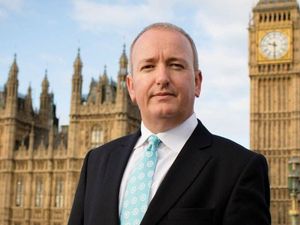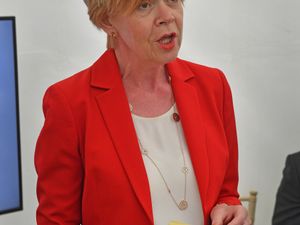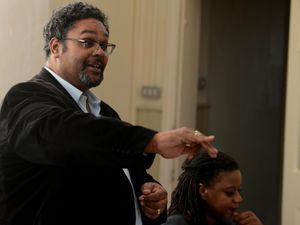Leaked report questions credibility of Sandwell Council corruption inquiry
A leaked report has cast doubt over the credibility of a Sandwell Council corruption inquiry - raising concerns over alleged bias, racism and political interference.
The controversial Wragge Report into misconduct at the council has dogged the authority for more than five years. An internal review was carried out into the inquiry last year but was kept under wraps until being leaked this week.
The review, led by council officers, concludes there are "deep concerns" still about the "conduct and circumstances" behind the two-year Wragge probe into misconduct by councillors and interference in property deals at the authority.
Citing examples of apparent "bias", breaches in procedures and claims of "racially motivated language" used by an investigator, the review authors say that what they found “undermines the credibility and objectivity of the Wragge Report that was eventually published.”
The leaked review is a new twist in a long-running saga into alleged impropriety at the Labour-led council - which is currently searching for its fourth chief executive in three years.
The Wragge Report, published five years ago, uncovered how Sandwell’s then-deputy leader, Mahboob Hussain, breached conduct rules over his involvement in a sale of council land and disused public toilets to a friend for £35,000 - after being valued at £130,000.
He was also alleged to have used his power and influence as a senior councillor to have relatives' parking tickets cancelled.
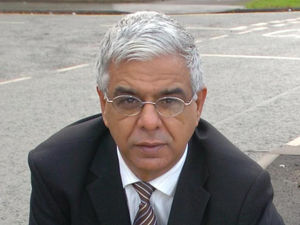
According to later High Court papers, the incidents happened in a period where the council was one where members were "the bosses" and the council was "open for business".
A subsequent standards committee hearing headed by QC James Goudie ruled Mr Hussain had been involved in a “substantial course of misconduct” over several years and breached the code of conduct 12 times. He was formally reprimanded for bringing the council into disrepute, ordered to attend training, barred from contacting council officers direct and blocked from holding senior roles for four years.
But Mr Hussain, who represented Oldbury and later quit the council, has always protested his innocence and claimed he was the victim of "a biased investigation" and a political witch hunt.
The disgraced ex-councillor has now welcomed the review and urged the council to publish it.
Mr Hussain, 61, called it "a breakthrough" in his battle to clear his name. He said the Wragge findings and misconduct hearing that followed have had a lasting impact on his life.
“I am not the same person I was five years ago. This destroyed my confidence and my good name. This was a political witch hunt.
“The police have made it clear I was never arrested.”
West Midlands Police launched an investigation into the incidents raised but later dropped their inquiries and closed the case.
The new review is not the first to examine in detail the investigation behind the Wragge Report and to look at claims of bias and what were referred to by one judge as “racist overtones” by its lead investigator Mark Greenburgh.
In 2017, Mr Hussain attempted to prevent further investigation of the allegations against him on the grounds of bias and political motivation, citing particularly a comment made by Mr Greenburgh to a senior officer about disability in the Hussain family being linked to "inbreeding".
But Judge Mr Justice Green, sitting in the High Court, while referring to the comment as "troubling", ruled against the application for a judicial review on the grounds of bias.
In a 60-page judgement, he rejected claims that the overall investigation was “biased”. He ruled there was a "serious case to answer" against Mr Hussain and gave the green light to an independent standards inquiry.
The main findings of the review have now been shared with the Wragge Report’s lead investigator, Mark Greenburgh.
He expressed "surprise and disappointment" that the council was devoting resources to going back over the evidence that led to the Wragge Report, when it had already been heavily reviewed and scrutinised by legal experts.
He said he was neither invited to contribute to the review, nor had seen its outcome, but pointed out that a lengthy High Court hearing, a QC-led independent analysis of his investigation and findings, and a further probe by the Solicitors Regulation Authority had all already taken place.
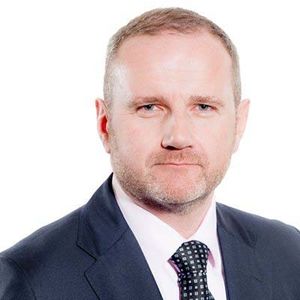
“I am satisfied that the conclusions reached in the Sandwell investigation were broadly accurate, as affirmed by Mr Goudie QC and (judge) Mr Justice Green (in his deliberations over whether there should be a judicial review). I note that the Judge held that my report contained “allegations that are serious and that there is a pressing public interest in those allegations being thoroughly and fairly tested and adjudicated upon”.
“It is both surprising and disappointing that even after so many years, the council appears to continue to focus its resources on examining the investigatory process, rather than the underlying issues it uncovered.”
The review, led by the council’s regulatory services boss Neil Cox supported by a retired police detective and two senior trading standards officers, was triggered by new complaints in 2019 and 2020 from Mr Hussain, fellow councillor Ian Jones and a council whistleblower over the way the Wragge investigation was run.
The complainants were interviewed but other key figures – including the lead investigator Mr Greenburgh and then-chief executive Jan Britton – were not.
The officers carried out desktop research into original witness interviews and transcripts as part of the review.
What they found, they say, “established a number of deep concerns particularly in respect of Mr Greenburgh’s conduct throughout the investigation due to his perceived prejudice, determination to prove the guilt of Mr Hussain in particular and a string of racially motivated comments he made to witnesses and officers.”
The review also alleges that a revisit of witness interviews and transcripts “has identified serious concerns about Mr Greenburgh’s professional training and approach to the investigation”.
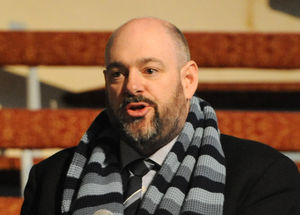
The lead investigator was accused of “asking questions and then answering them himself”, as well as “the potential leading of witnesses by sharing with them his personal opinions of other witnesses and individuals linked to the investigation.”
He was also criticised for alleged “disclosure to witnesses of the private and personal information of individuals linked to the investigation.”
The resulting transcripts of interviews were also ‘equally poor’, the review found, while there was said to be “a fundamental misrepresentation of the evidence within the report.”
The review concludes: “This review has not sought to reinvestigate the allegations made against the members who were the focus of the Wragge Report, it has been focused on examining how the investigation was conducted and understanding the circumstances surrounding the production of the report.”
During their review of witness statements, the review team spotlighted an instant when Mr Greenburgh allegedly likened Mr Hussain’s situation to notorious gangster Al Capone.
The review reads: “Further troubling comments indicating potential prejudice were made…during (an) interview, during which he likens Mr Hussain’s situation to that of the notorious gangster Al Capone…to make such an elaborate comment is both inappropriate and unprofessional and suggests a level of prejudice and that Mr Greenburgh was revelling in the belief that he had demonstrated inappropriate conduct on the part of Mr. Hussain.”
Several comments by Mr Greenburgh to witnesses are also described by the review as "racially motivated".
They include a suggestion, allegedly said in one interview, that all men with a Muslim name he had been made aware of as part of his enquiry were relatives of Mr Hussain and a comment he made to one witness was interpreted to mean he was suggesting a Muslim couple may deliberately have had more children to increase the likelihood of a housing upgrade.
In 2019, an independent probe by the Solicitor Regulation Authority into a complaint of racism against Mr Greenburgh was not upheld. However, he received a written rebuke for one comment that was deemed inappropriate, in which he suggested that the disabilities of Mr Hussain’s daughter and her children were caused by ‘inbreeding’.
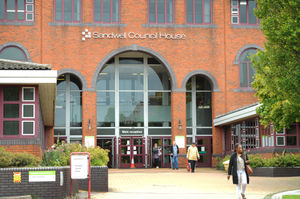
In a statement Mr Greenburgh said: “Neither I, nor this firm (Greenburgh and Co), have ever been contacted by Mr Cox or anyone else connected to whatever review he is said to have undertaken.
“He has certainly not put any criticisms to me, or invited any response to his conclusions.
“I can confirm that I led a team of lawyers who undertook an investigation into allegations of impropriety at Sandwell Council.
“My understanding is that external lawyers were invited to undertake that report as there were serious concerns that an internal investigation may not be independent.
“My report and the background papers, including the interview notes, drafts of the report and working papers were all available to the council. They were scrutinised by an eminent QC, James Goudie. His Opinion was published alongside my report.
“Mr Hussain launched a judicial review application against the council relating to the report and its findings.
“Whilst I was not invited to give evidence to that court case, all of the evidence was available to the court and to Mr Hussain’s experienced solicitors and QC.
“Following an intensive and detailed consideration of the evidence, including a forensic scrutiny of both the process of my investigation and its conclusions, Mr Justice Green dismissed all the allegations made by Mr Hussain. The Judge set out my professional qualifications and background in his judgement.
“Mr Hussain also made allegations of racism, bias and discrimination against me to the Solicitors Regulation Authority. Following an investigation and hearing process lasting nearly two years, the SRA did not accept any allegations of racism or discrimination against me.
“Again, all of the papers that were available to the court were available to Mr Hussain’s lawyers and the SRA in that process.
“Without seeing the totality of it (the review) and the basis on which the comments are made, I am not able to comment.
“The essence of any investigation is to gather evidence and test it; to give each person the opportunity to understand the allegations and evidence relevant to them, and to respond to it; and to reach independent and justified conclusions on the evidence.
“I am satisfied that the conclusions reached in the Sandwell investigation were broadly accurate, as affirmed by Mr Goudie QC and Mr Justice Green. I note that the Judge held that my report contained “allegations are serious and that there is a pressing public interest in those allegations being thoroughly and fairly tested and adjudicated upon”.
“It is both surprising and disappointing that even after so many years, the council appears to continue to focus its resources on examining the investigatory process, rather than the underlying issues it uncovered.
“If Mr Cox, or anyone else, has specific and evidenced allegations to put to me, I will consider them and respond, if appropriate.”
The review also details concerns that the final Wragge Report was “influenced” by former chief executive Jan Britton and Labour Party officials.
It states: “The former Chief Executive shared his personal opinions on the matters that had been investigated and that he had a significant input into the content and presentation of the final report, actions which would lead a ‘fair minded observer’, to question the independence of the investigation.”
There was also evidence that the former Chief Executive exchanged emails with Mr Greenburgh using a personal email address, contravening council rules, according to the review.
The review also references potential input from the Labour Party into the Wragge Report.
“As well as this exchange of emails, evidence has also come to light which suggests the Regional Secretary of the Labour Party at the time was provided with a private and confidential letter from Mr Greenburgh to the former Chief Executive, outlining the investigations findings, prior to the completion of the report, and was in dialogue with both the former Chief Executive and the then Council Leader, Darren Cooper, about its contents,” the review adds.
The review also details how officers involved in selecting law firm WLG to carry out the Wragge inquiry failed to follow procurement and contract rules; incurred costs of £43,000 without approvals in place; repeatedly failed to use the corporate procurement system when paying WLG invoices – which amounts to a breach of its own rules and financial regulations; and that there was no management of the spiralling costs of the investigation. It rocketed from an estimate of £100,000 to more than £180,000, according to he review.
This is now under "concurrent investigation," the review says.
Both Mr Greenburgh and Mr Britton said they have not been interviewed or asked to contribute to the review, nor offered a chance to defend themselves by the council.
Mr Britton, who served as the council’s CEO for 13 years until he resigned in May 2019, said: “I haven’t seen the documents you refer to so I am unable to comment on them.
“The investigation that became known as the Wragge Report was subject to a Judicial Review in the High Court in 2017. The court examined a number of complaints about the report and they were all dismissed.”
“Through the course of the Wragge investigation I held a series of case conferences with Mr Greenburgh. I am slightly surprised that anyone would think this was not appropriate.”
Sandwell Council said it would not comment on the contents of a confidential report.
The council added: “Sandwell Council is committed to the highest standards of fairness and equality and where issues are brought to our attention we will respond robustly.
“We have recently taken action to ensure our processes are transparent and fair, including external independent input and the establishment of an Equalities Commission, and we will continue to focus on this important area and drive through improvements.”
The Wragge Report was published in 2016. Since then the council has had six different leaders due to regular infighting in the authority's Labour group.


